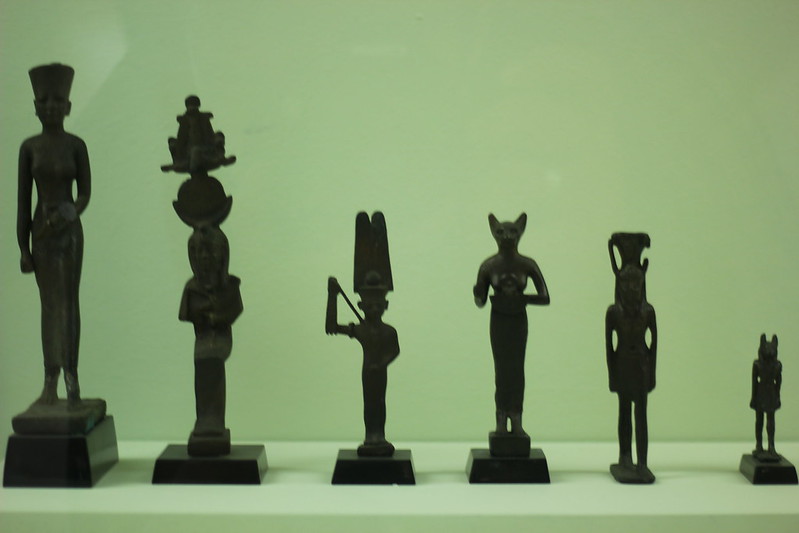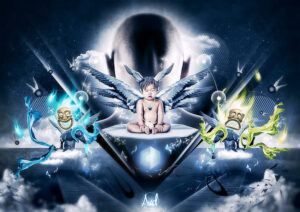
Contents
- 0.1 I. The Gospel of Progress
- 0.2 II. The Death of Meaning and the Birth of Management
- 0.3 III. The Church of Silicon
- 0.4 IV. The Temple of the Pill
- 0.5 V. The Great Swap: Soul for System
- 0.6 VI. The Silence of the Elders
- 0.7 VII. The Psychology of Captivity
- 0.8 VIII. The Southern Hemisphere Paradox
- 0.9 IX. The Economics of Dependence
- 0.10 X. The Crisis of Authority
- 0.11 XI. Signs of a Rebellion
- 0.12 XII. Re-enchanting the World
- 0.13 XIII. The Return of the Human
- 0.14 XIV. Call to Reflection
- 0.15 XV. Closing Benediction
- 1 Related Articles
I. The Gospel of Progress
Once upon a time, the West promised freedom. Freedom of speech, conscience, enterprise—freedom to think, pray, or rebel. Somewhere along the way, progress became a religion of its own. We stopped worshipping at cathedrals and began queuing at Apple Stores. The priestly robes turned into lab coats and hoodies; the incense, now the blue glow of a screen.
We were told technology would liberate us from toil and medicine would deliver us from suffering. Both delivered comfort, but comfort has a shadow. The more convenient life became, the less control we seemed to have over it. We traded autonomy for automation, spirit for stimulation.
II. The Death of Meaning and the Birth of Management
After two world wars and one cultural revolution, the West no longer believed in sin—only in “issues.” The marketplace replaced the monastery, and therapy replaced confession. Every moral failing could be managed, medicated, or monetized.
Instead of asking “What is good?” we began asking “What works?” This shift—from moral to mechanical thinking—created a civilization brilliant at engineering things and dreadful at understanding souls.
When a society stops believing in transcendence, it doesn’t stop worshipping. It simply bows to new idols. The modern pantheon has two great pillars: Technology and Pharmaceuticals. They promise salvation through efficiency and chemistry. The smartphone and the pill bottle have become twin sacraments of the secular age.
III. The Church of Silicon
The Tech god doesn’t demand faith; it supplies dopamine. Its commandments come as notifications. Its prophets wear sneakers and talk about disruption while selling attention by the byte.
Every click, like, and share is an act of worship. We sacrifice privacy for the illusion of connection. We confess our secrets voluntarily to invisible priests in data centers. The confessional booths are now called “Terms and Conditions,” and nobody reads the gospel before agreeing to it.
Algorithmic catechisms decide what we believe, who we love, and what we fear. The god of code shapes our perception more intimately than any preacher ever could. Yet we rarely rebel, because rebellion would require boredom—and boredom is the new blasphemy.
IV. The Temple of the Pill
While Big Tech digitized our minds, Big Pharma anesthetized our emotions. Pain—once a teacher—became a problem to be silenced. We forgot that sadness has purpose, that anxiety can signal misalignment, that restlessness can drive growth.
Instead of confronting meaninglessness, we medicated it. We pathologized ordinary suffering and branded it “disorder.” The result is a culture of chemical equilibrium—numb enough to function, sedated enough not to riot.
To be clear, medicine saves lives. Antibiotics, vaccines, anesthesia—miracles of human ingenuity. But when a civilization seeks its salvation in substances, it becomes addicted not to drugs but to dependence itself. Every pill reinforces the message: you can’t handle reality without us.
V. The Great Swap: Soul for System
The fusion of Tech and Pharma has created a feedback loop. The more technology isolates us, the more pharmaceuticals promise to make isolation bearable. We scroll ourselves into depression, then medicate the depression so we can keep scrolling. The system is perfect because it monetizes both the cause and the cure.
The ancient Greeks warned of hubris—believing we could outsmart the gods. The modern West suffers from reverse hubris: believing our inventions are the gods. We built idols out of microchips and molecules, and now they run our calendars, our conversations, and our chemical states.
VI. The Silence of the Elders
Every civilization depends on elders who remember who we are and what we stand for. The West replaced them with influencers. Instead of wisdom distilled from experience, we get content optimized for engagement. The algorithm rewards outrage, not understanding; novelty, not nuance.
Philosophers once debated virtue; now we debate Wi-Fi speeds. The moral vocabulary of entire generations has been reduced to emojis. Our grandparents survived wars; we panic when our phone battery dips below 10 percent. That’s not progress—it’s regression with better lighting.
VII. The Psychology of Captivity
We used to fear physical chains; now we fear missing out. The psychological techniques once reserved for propaganda are baked into user-experience design. Variable-reward systems—likes, streaks, retweets—keep the dopamine cycle spinning.
The Pharmaceutical priesthood completes the circle. When overstimulation burns out the brain, a prescription resets the baseline. When anxiety spikes from constant connection, a pill turns down the volume. The system sustains itself like a self-licking ice-cream cone—sweet, circular, and impossible to escape without withdrawal.
VIII. The Southern Hemisphere Paradox
Meanwhile, many nations in Africa, Asia, and South America—though far from utopian—still hold onto elements the West discarded: faith, family, community, reverence for elders, and a slower rhythm of life. Their “under-development” may ironically be insulation against over-control.
Where the Western citizen asks, “What’s the Wi-Fi password?” the villager asks, “Have you eaten?” One question seeks connection; the other expresses care. In that difference lies a world of wisdom.
This isn’t romanticism—it’s perspective. Progress without purpose breeds alienation. Sometimes the so-called “less advanced” cultures are simply less entangled.
IX. The Economics of Dependence
Both Tech and Pharma operate on the same business model: recurring use. They don’t sell products; they sell habits. Social media is free because you’re the product. Many medications aren’t cures because you’re the revenue stream.
Capitalism isn’t evil, but it’s amoral—it amplifies whatever it’s fed. Feed it human weakness, and it will monetize despair. Feed it human creativity, and it can build cathedrals again. The system isn’t possessed; it’s programmable. The problem is that we’ve let the code run without conscience.
X. The Crisis of Authority
When traditional religion faltered, something had to fill the vacuum of meaning. Tech became omniscient, Pharma became omnipotent, and government became omnipresent. Together they form an unholy trinity of data, dosage, and decree.
The irony? The West built its power by championing individual conscience—the very thing this trinity undermines. Freedom once meant moral responsibility; now it means unlimited options managed by algorithms. We’ve mistaken choice for character.
XI. Signs of a Rebellion
Yet all is not lost. A quiet resistance is growing—people who detox from digital dependence, question medical overreach, and seek grounded spirituality without fanaticism. The revival won’t come from governments or corporations; it’ll come from individuals rediscovering discipline, discernment, and community.
Some call it homesteading, others call it mindfulness, others simply call it waking up. Every time someone learns to cook instead of order in, to read instead of scroll, to pray instead of post, a small rebellion occurs. The revolution of the 21st century will be interior before it is political.
XII. Re-enchanting the World
We don’t need to destroy Tech or Pharma. We need to re-sanctify them—to remind invention that it serves life, not the other way around. Science without soul becomes manipulation; faith without reason becomes madness. The marriage of the two, properly ordered, could still save the West.
Imagine technology designed to deepen attention rather than fragment it. Medicine aimed at curing roots rather than symptoms. A digital economy built on transparency instead of addiction. These are not fantasies; they are choices.
But first, we have to remember that we have a choice. That’s what gods—real or manufactured—fear most.
XIII. The Return of the Human
The antidote to dehumanization is, simply, humanity. Real eye contact, unrecorded conversations, craftsmanship, contemplation. Every act of creation re-asserts the human spirit against the mechanical order.
The West doesn’t need a new empire; it needs a new ethos. One that balances faith and fact, progress and principle, comfort and courage. If we can remember that technology and medicine are tools, not masters, then perhaps this story isn’t about the fall of the West at all—but its awakening.
XIV. Call to Reflection
Ask yourself:
- Do I own my attention, or has it been leased to the feed?
- Do I use medicine to heal, or to hide?
- Am I creating culture, or consuming it?
The future will belong not to the most connected, but to the most conscious. As the digital and chemical empires expand, the truly free will be those who master both without bowing to either.
XV. Closing Benediction
Civilizations fall when they forget what made them rise. The West once believed that truth was worth dying for. Now we avoid discomfort at all costs. But discomfort is where growth lives; silence is where wisdom speaks; and humility is where God—whatever name you use—still whispers.
Maybe the fall of the West is simply the end of arrogance, and the beginning of remembering. The silicon gods can promise everything except meaning. That, we must rediscover for ourselves.





